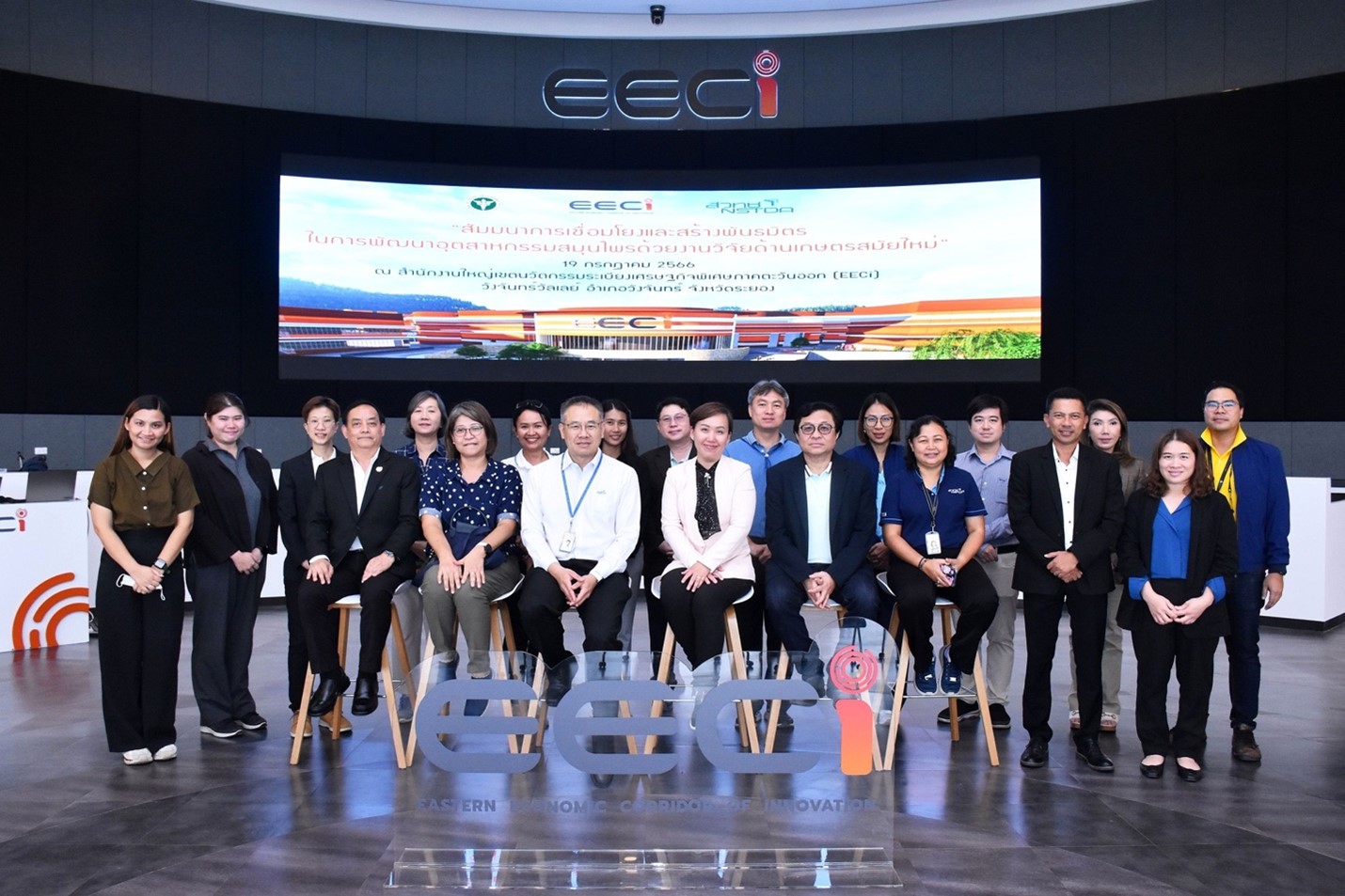
NSTDA, in collaboration with the Department of Thai Traditional and Alternative Medicine, recently organized a seminar on modern agricultural technology and its potential to promote Thai economic herbs. The event, held at the Eastern Economic Corridor of Innovation (EECi) on 19 July 2023, unveiled five promising economic herbs for Thailand: Centella asiatica, Curcuma longa, Kaempferia parviflora, Andrographis paniculata, and Ocimum tenuiflorum. These herbs have been the subject of intensive research by the BIOTEC Integrative Crop Biotechnology and Management Research Group, focusing on increasing their yield and bioactive compound productivity.
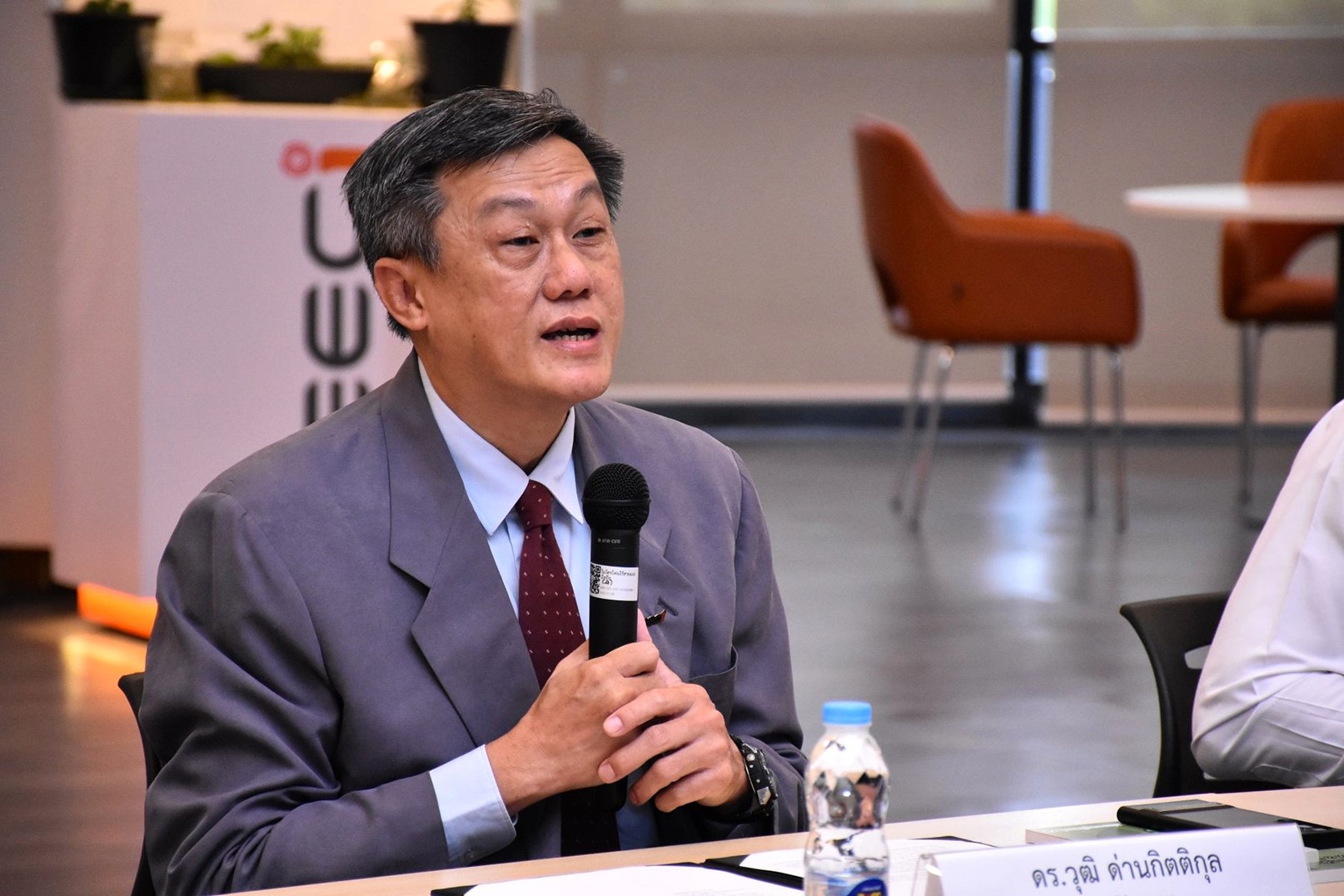
NSTDA Executive Vice President Dr. Wut Dankittikul said that the seminar aimed to foster collaboration between researchers and enterprises to enhance the global competitiveness of the Thai herbal industry. NSTDA Executive Vice President Dr. Janekrishna Kanatharana emphasized various programs, infrastructures, and platforms available at NSTDA to support sustainable growth of the Thai herbal industry. These include NSTDA’s Agriculture Technology and Innovation Management Institute (AGRITEC), EECi, Thailand Science Park, Software Park Thailand, Food Innopolis, and Thai Innovation List. The Biopolis compound of EECi, in particular, houses multiple research facilities dedicated to plant research and herbal product innovation, such as the smart greenhouse, plant factory, plant phenomics facility, and biorefinery pilot plant.
The five aforementioned herbal plants have undergone rigorous research at BIOTEC to establish production stability and quality, thereby boosting their economic potential and contributing to food security. The integration of digital technology has modernized agricultural practices and resulted in precision farming, effectively increasing crop productivity.
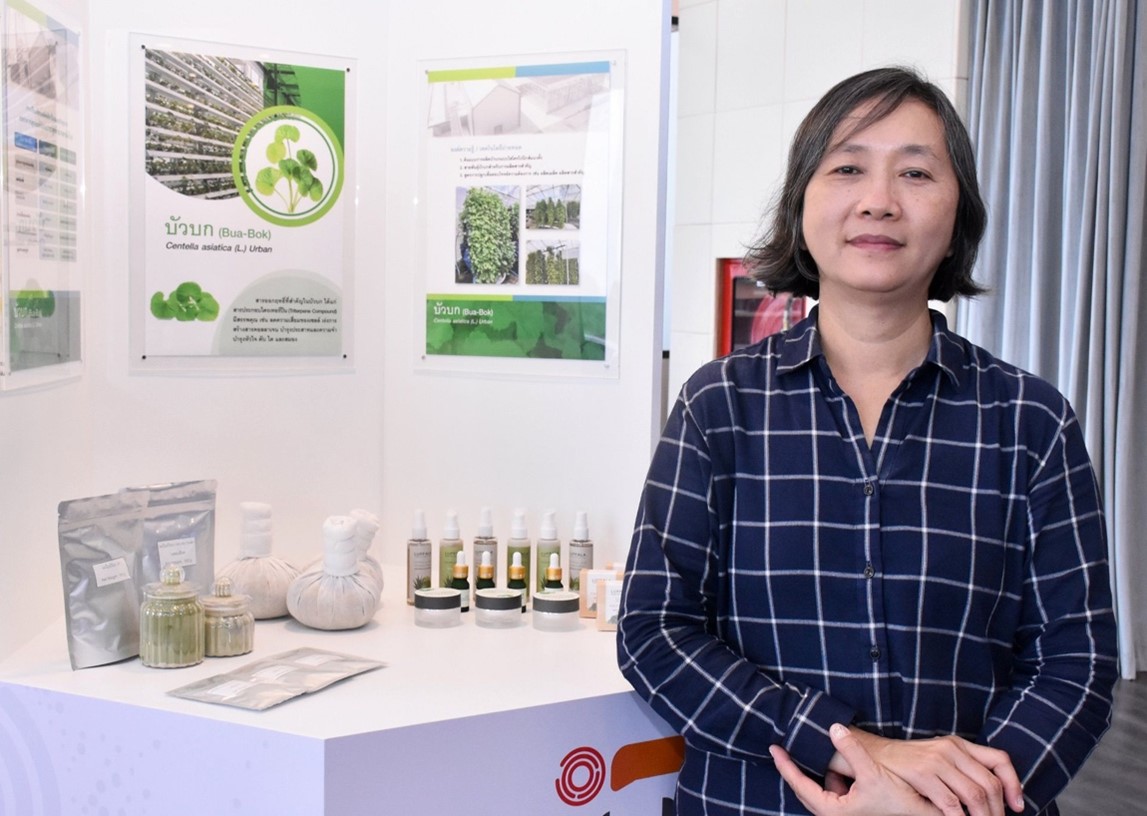
Dr. Kanokwan Romyanon disclosed that the Innovative Herbal Plant Factory Research Team at BIOTEC has identified two Centella asiatica varieties out of more than 200 that provide high yield and elevated bioactive compound content. The team has also developed a vertical farming system for Centella asiatica production.
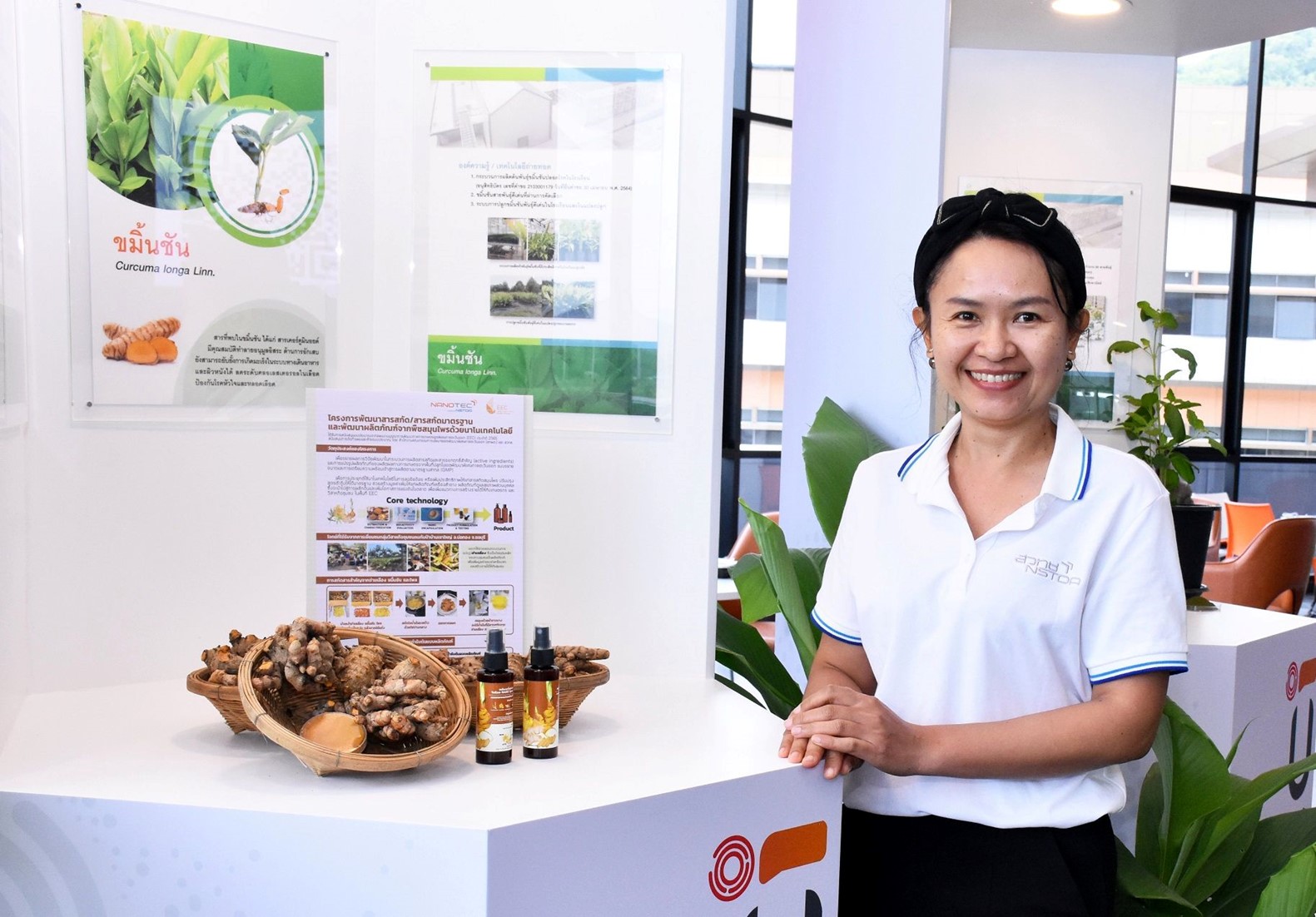
Dr. Rujira Tisarum from the Innovative Plant Genetic and Physiology Research Team discussed their studies on mass propagation and varietal selection of Curcuma longa, along with the development of indoor and outdoor production systems.
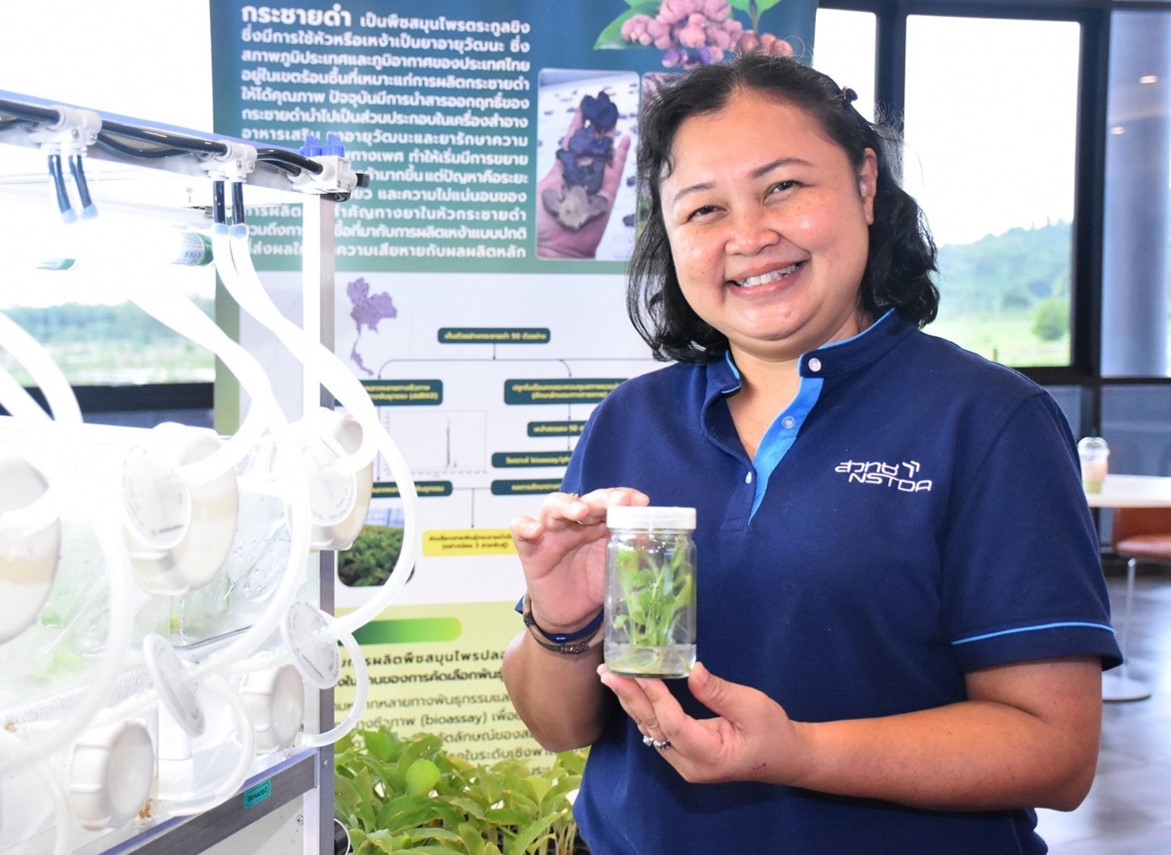
Dr. Yeetoh Dabbhadatta revealed that her team conducted research to identify high bioactive compound varieties of Kaempferia parviflora and develop a production system that minimizes pathogens. A high bioactive compound variety for cosmetic, food supplements and drug will soon be introduced. Furthermore, the team have successfully created a tissue culture system for the production of pathogen-free plants to distribute to growers, and a bioreactor system for commercial-scale mass propagation which can be applied not only to Kaempferia parviflora but also to ornamental plants and endangered species.
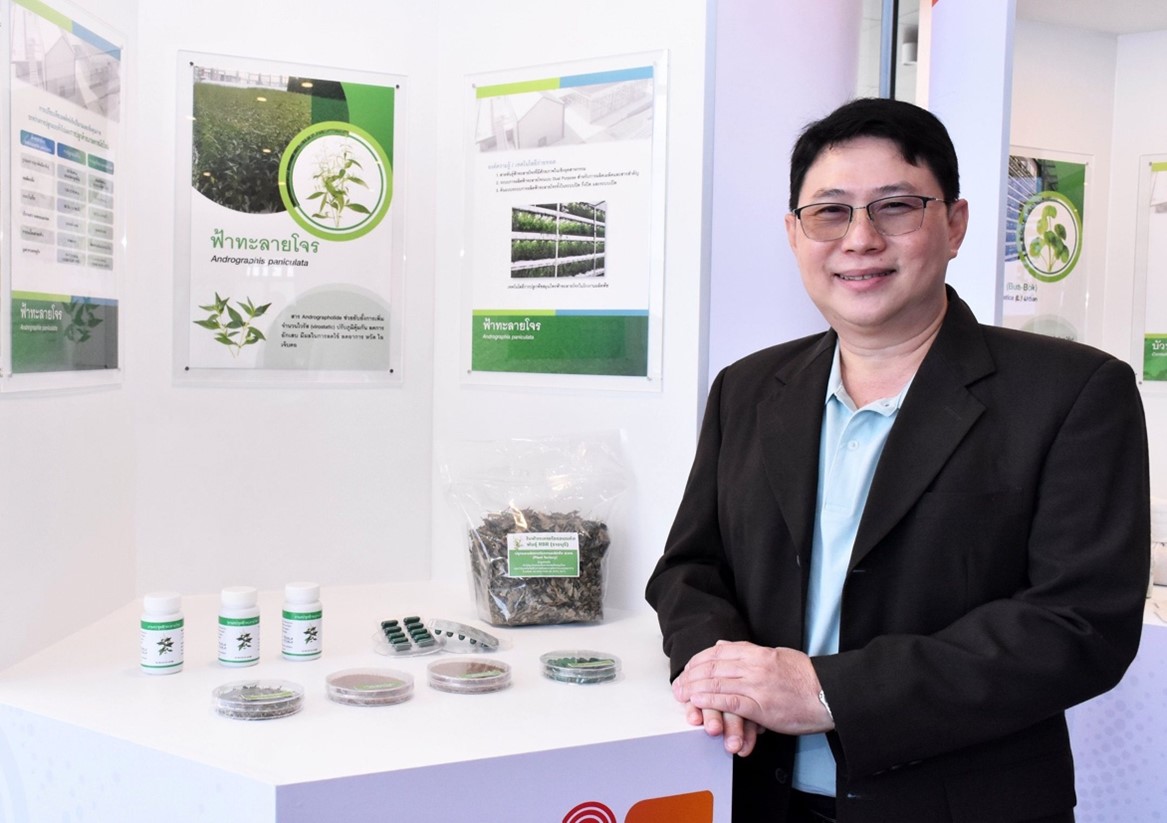
Dr. Praderm Wanichananan described the research scope of his team being discovering Andrographis paniculata varieties with high level of bioactive ingredients and creating an array of plant production systems, including closed, semi-closed and open field systems.
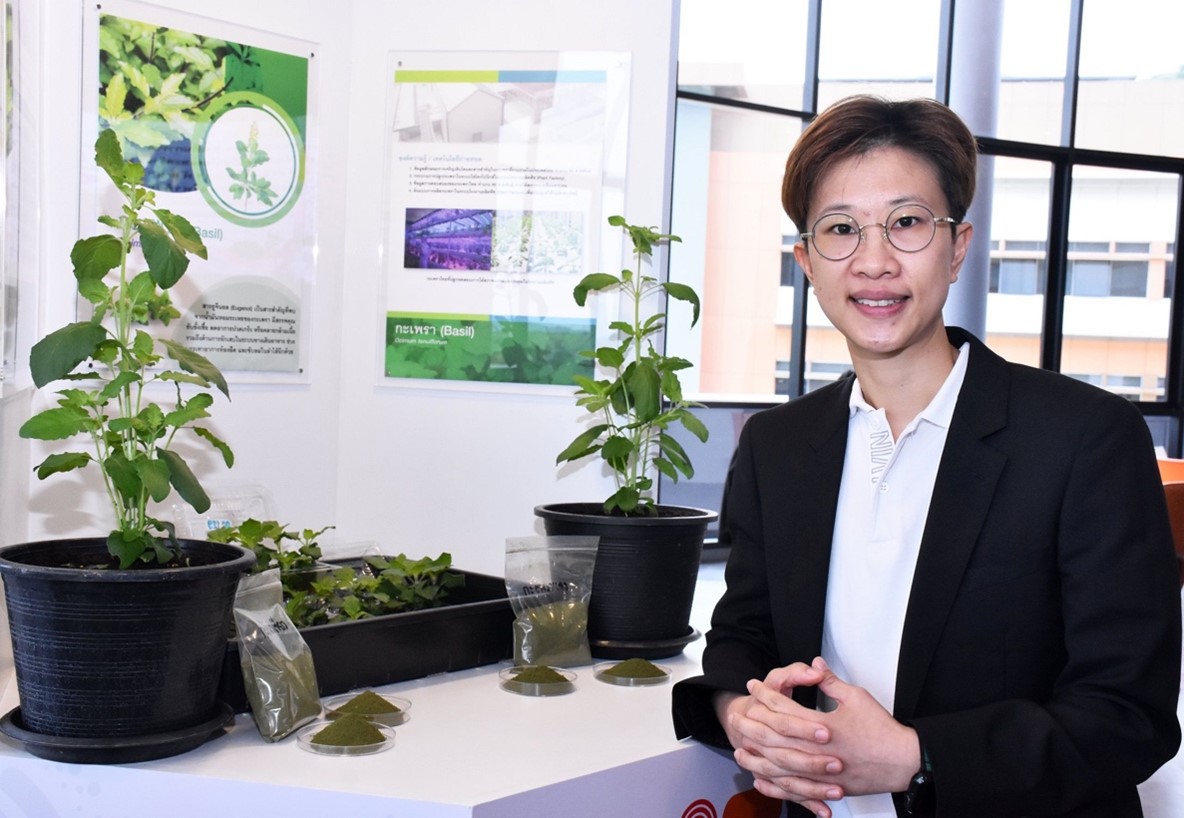
Dr. Panita Chutimanukul revealed the challenges surrounding Ocimum tenuiflorum, or holy basil. Because the export of holy basil has been banned since 2011 due to pests and the heavy use of pesticides, the research team saw an opportunity to cultivate premium-grade holy basil in a pesticide-free plant factory facility. Through experiments conducted in the plant factory, they have gathered valuable information about plant responses to environmental factors, leading to the design of an optimal production system. The team has also uncovered numerous valuable properties of over 90 varieties of holy basil, such as anti-inflammatory, anti-microbial, Alzheimer's disease prevention, cholesterol reduction, and gas-relieving properties. Selected varieties will soon be demonstrated in the plant factory, greenhouse, and open fields at EECi.
